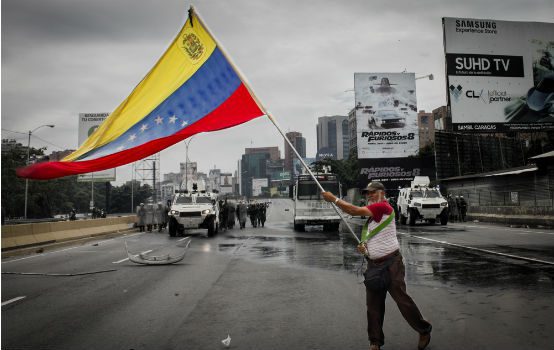The Cost of Weaponizing Aid Deliveries

The Los Angeles Times reports on the Trump administration’s latest terrible idea:
The Trump administration plans to divert more than $40 million in humanitarian aid from Central America to the U.S.-backed opposition in Venezuela, according to an internal memo and interviews.
Regardless of what one thinks about the administration’s misguided Venezuela policy, this is a serious mistake that takes away humanitarian aid from a region that very much needs it. Taking away aid funding for Central America will only make people more likely to flee the affected countries, and that in turn will add to the migration crisis that the administration is handling so horribly. This is the first installment of the president’s disastrous threat to shut off all aid to Central American nations in cruel and stupid attempt to cut back on migration:
Trump’s threat applied to money allotted for the region for 2018, a total of about $370 million. The $41.9 million is the first tranche of those funds to be “repurposed,” said a congressional aide familiar with the matter, who requested anonymity in discussing internal workings.
“What they are doing is essentially taking the money that would help poor Central American children and giving it to pay the salaries of Guaido and his officials and employees,” the person said.
It is important to understand that this funding won’t be used to address the growing humanitarian crisis in Venezuela that has been exacerbated by U.S. sanctions. This is not a case of redirecting humanitarian aid to an area with greater need. Instead, this money will go to pay Guaido and his allies:
All of the money being diverted will go to Guaido and his faction, the memo said, to pay for their salaries, airfare, “good governance” training, propaganda, technical assistance for holding elections and other “democracy-building” projects.
This is a very questionable use of USAID funding. That is not what this money was intended for, and it is not how humanitarian aid funding should be used. Directly funding the Venezuelan opposition is also likely to undermine and discredit Guaido and his allies in the eyes of many of their countrymen, and it will make it even harder to disentangle the U.S. from this crisis in the future. Diverting aid funding away from people that desperately need it in support of a failing policy of regime change doesn’t make sense on any level.
The article continues:
“It’s a terrible idea not to spend that money in Central America,” said Geoff Thale, programs vice president at the Washington Office on Latin America, a human rights research group. “Especially at a moment when the intention seems to be to bottle up people in that region, not spending the funding to improve conditions in the region” makes no sense, he said.
Just as the administration has done in the Palestinian territories and elsewhere, they are using humanitarian aid as a bludgeon to punish the population for the supposed failures of their governments, but by cutting off the funding they are simply making conditions worse and giving more people another reason to leave their countries. If the administration wants to stem the flow of migrants to the U.S., it should be increasing humanitarian and economic assistance to Central American countries rather than cutting it, but one gets the impression that the administration always prefers to inflict pain rather than solve the problem.
In addition to this, aid agencies operating in Venezuela have continued to object to the Trump administration’s habit of weaponizing those deliveries to advance their regime change policy:
But aid officials and analysts say Trump and his aides have intervened to exceptional degrees to direct the funds and goods in ways designed to benefit one side in a conflict — and to bolster Trump’s standing with his Republican political base. It’s an approach that may violate core international principles that such assistance be politically neutral, especially if intended for humanitarian reasons.
“In a conflict environment or a politically contested environment, if you align aid with one or the other side, it has a much harder time getting through,” said Jeremy Konyndyk, a senior policy fellow at the Center for Global Development who worked at USAID under the Obama administration.
The more politicized aid becomes, the less effective it is because it cannot reach the people that need it, it potentially makes recipients into targets of reprisals from pro-government forces, and it gives political actors incentives to block it or seize it. By inserting the U.S. in Venezuela’s crisis, declaring openly for one side, and using humanitarian aid to undermine the government, the administration has sabotaged relief efforts.
Five months ago, I warned about the pitfalls of weaponizing aid deliveries:
Once outside governments weaponize the delivery of humanitarian aid, that makes it much harder to combat hunger and preventable diseases in the affected country. Aid deliveries should not be abused for P.R. purposes or to score political points against rivals.
Venezuela’s humanitarian crisis has since grown worse in part because of U.S. sanctions, and U.S. aid efforts are hamstrung by the misguided policy of involving the U.S. in their political crisis. Now it seems that people in Central America are also going to bear some of the costs of Trump’s senseless regime change policy.
Comments